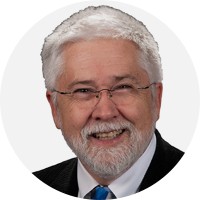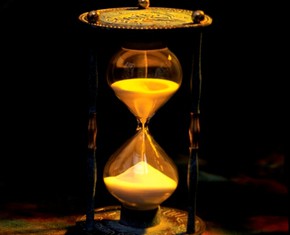The views expressed in our content reflect individual perspectives and do not represent the authoritative views of the Baha'i Faith.
Belief in God may be better than non-belief, but here’s the thing: some people dispute every detailed proof of the existence of God.
I’ve made a study of the arguments, both tedious and profound, of the best-known philosophers – the cosmological argument, the ontological argument, the teleological argument, the anthropological argument and others. I have a list of 555 “proofs” of God, each in three or four lines. That list of 555 proofs, however, came to me by way of a society of atheists, who either did not carefully consider them or found them unconvincing, and thus uninspiring.
In my study of these proofs, I’ve come to understand that logic and reasoning can help us figure out why a Creator exists – but I’ve also reached this conclusion: proving that God exists through reason alone often falls short. The Baha’i teachings have helped me in that regard:
It is evident that whatsoever man understands is a consequence of his existence, and that man is a sign of the All-Merciful: How then can the consequence of the sign encompass the Creator of the sign? That is, how can human understanding, which is a consequence of man’s existence, comprehend God? Thus the reality of the Divinity lies hidden from all understanding and is concealed from the minds of all men, and to ascend to that station is in no wise possible.
We observe that every lower thing is incapable of comprehending the reality of that which is higher. Thus, no matter how far they may evolve, the stone, the earth, and the tree can never comprehend the reality of man or imagine the powers of sight, hearing or the other senses, even though the former and the latter alike are created things. How then can man, a mere creature, comprehend the reality of the sanctified Essence of the Creator? – Abdu’l-Baha, Some Answered Questions, newly revised edition, p. 166.
While I don’t think reasoned proofs are particularly effective, nevertheless, I’ll share some observations that resonate with me. (I’m sure these are on the list of 555 somewhere.) The first I’ll state as poetry and as a riddle:
The Works Director
It’s science when we discover how our world works
and art when we reveal what we are called to manifest.
It’s labor when we toil to contribute to society
and recreation when we take time to repair.
It’s friendship when we delight in another
and procreation when we are driven to create another.
It’s community-building when we order our lives together
and civilization-making when we spread this order.
But what directs these activities and compels our action?
It’s something within us, that makes us want to discover,
to create, to labor, to be with another, and to build collectively.
It’s a single force that drives us to act,
to become and to improve the world.
It’s more than utilitarian survival.
It recognizes us in others and moves to bring us together.
It’s stubborn in declaring unity even against persistent obstacles.
But what is this thing that moves us and directs our very being?
And what are we who are so moved?
We seem to be sentences.
Nouns, verbs, adjectives and more,
set in motion by an unseen author,
made to rhyme with other words before and after us
in chapters and books in a great evolving, perfecting story.
We are instruments, sounding out a symphony
when we are tuned and true.
Being played in a divine melodic score.
But who is the author and composer?
It must be God acting within us,
driving us toward a divine completion.
We each form a part, it seems, of an enormous divine plan. We are not independent authors of our destiny; we take part in a physical and social system created for us and guided by mysterious and ultimately unknowable spiritual forces:
No human understanding can approach this station, no utterance can unfold its truth, and no allusion can intimate its mystery. … Minds are powerless to comprehend Him, and souls are bewildered as they attempt to describe His reality. …
Thus, in this connection, every statement and explanation is deficient, every description and characterization is unworthy, every conception is unfounded, and every attempt to contemplate its depths is futile. Yet for that Essence of essences, that Truth of truths, that Mystery of mysteries, there are splendours, effulgences, manifestations, and appearances in the world of existence. – Ibid., pp. 166-167.
The divine plan unfolds slowly, making mistakes and correcting imperfections as it goes – in some places faster than others. The physical signs, well known to evolutionary biologists, make evolution visible. But the signs of social and spiritual evolution, less visible but just as real, show us that divine plan at work.
You May Also Like
Comments

















when we are tuned and true.
Being played in a divine melodic score.
But who is the author and composer?
It must be God acting within us,
driving us toward a divine completion.“
Well said. That reminds me of Rumis Mathnawi. The highest spiritual attainment has been expressed by the Sufis with the phrase insân-i kâmil, the perfected or completed human being. The fully awakened human being is the ultimate proof of God. Our own existence, what we are, our own consciousness. Think about it. All religions struggle to prove the existence ...of God, but none of them struggle to prove your existence.